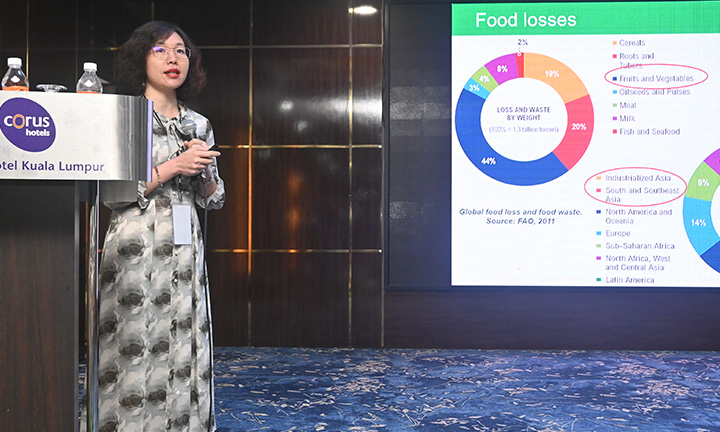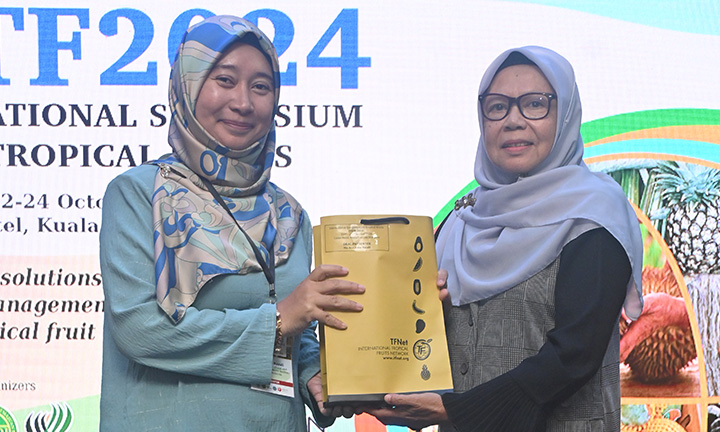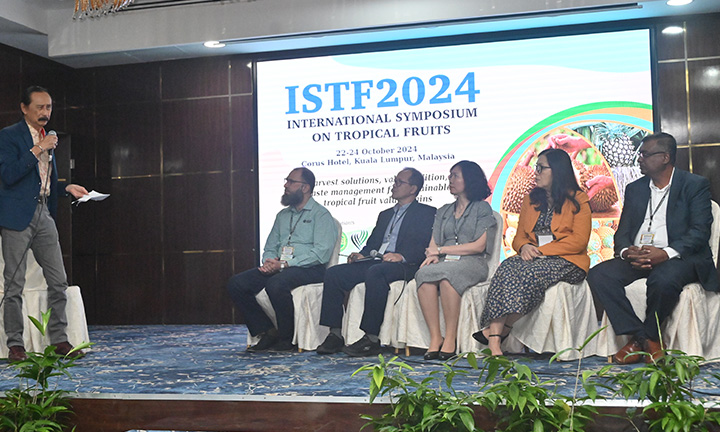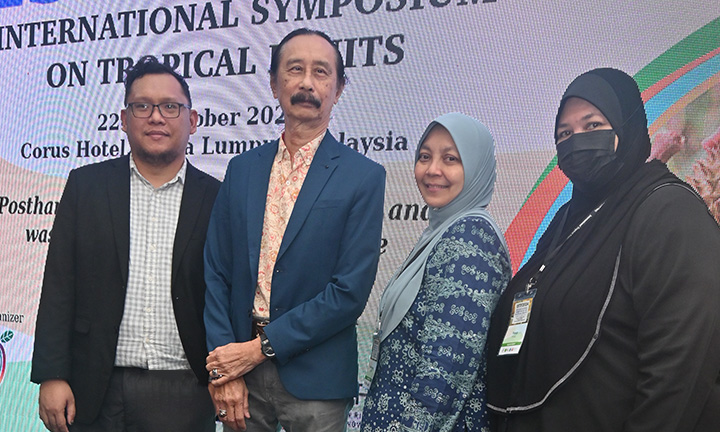The International Tropical Fruits Network (TFNet), in collaboration with co-organizers from the Department of Agriculture Malaysia, Malaysian Agricultural Research and Development Institute (MARDI), Research and Innovation Agency (BRIN) in Indonesia, and Guangdong Academy of Agricultural Sciences (GDAAS) in China, held its annual international symposium on tropical fruits. Themed ‘Postharvest Solutions, Value Addition, and Waste Management for a Sustainable Tropical Fruits Value Chain,’ the symposium took place at Corus Hotel, Kuala Lumpur, Malaysia, from 22nd to 23rd October 2024.
The symposium was officiated by Honourable Datuk Azah Hanim Ahmad, the Deputy Secretary General (policy) of the Ministry of Agriculture and Food Security, Malaysia. In her speech, Datuk Azah highlighted the various challenges that are impacting the agriculture sector, including the tropical fruits industry, such is increasing cost of production, market access and productivity issues. Dr. Azah also said that postharvest losses and waste constitute main challenges and should be given close attention by impacted players along agricultural value chains. She also referred to the symposium’s relevant theme, emphasizing the ongoing challenge of postharvest losses in agriculture, particularly in tropical fruits, particularly for producing countries. Datuk Azah hoped that the information shared by experts and practitioners on innovations and good practices can be adopted to mitigate such losses. Datuk Azah also stressed the importance of value addition to enhance processed products and prioritizing farm waste management in line with recent environmental trends.
A total of 22 papers were presented, covering topics ranging from postharvest solutions and best practices to recent postharvest research and development initiatives and waste management. Keynote speakers included Dr. Mohammad Sohail Mazhar from the Department of Plant Industries, Tourism and Trade, NT Australia, and Dr. Guinevere Ortiz from New Zealand’s Plant and Health Institute. Additionally, invited and other speakers from China, Fiji, Malaysia, Indonesia, Oman, Sudan, Tanzania, and Vietnam contributed to the symposium. Besides presentations, there were 6 poster presentations.
Over the course of a day and a half, 70 participants from 11 countries, including presenters plus others from Bangladesh, Philippines and Sri Lanka, attended the symposium. Participants shared and exchanged information, primarily focusing on postharvest challenges, innovations, and converting waste into useful products. In the panel discussion, noting that big companies or advance producers can manage the postharvest losses better, members were requested shared their experience on how smallholders can be encouraged to adopt best postharvest practices. Details of the papers and discussions will be published in a symposium proceedings.





Research delivering her keynote presentation.




Guangdong Academy of Agricultural Sciences.

BRIN.




